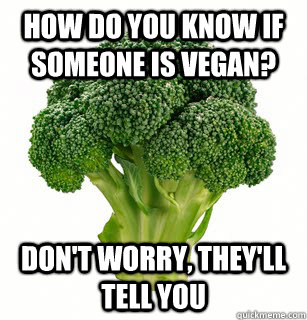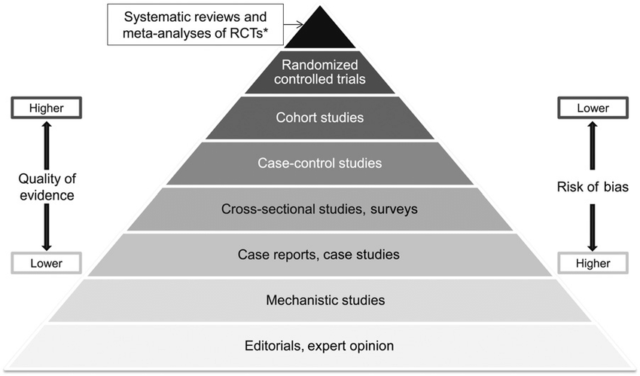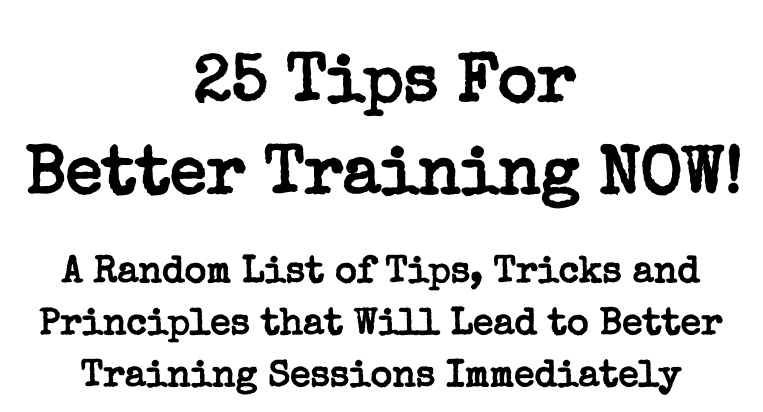Dr. Layne Norton says it all the time,
“Food has become the new religion”
I think he’s right.
Religious people describe themselves as:
- Christian
- Jewish
- Muslim
- Flying Spaghetti Monster
When it comes to food many of us do the same:
- Paleo
- Raw food
- Atkins
- Keto

How many people lately have been doing the Beyoncé or Tom Brady diet or J-Lo no sugar challenge?
How often is it you hear this or that person lost weight doing this diet or such and such eats ___insert magic food___.
Why?
Do any of those people actually know ANYTHING about nutrition and what’s going on with the body?
How could people actually think they “discovered” some “new way of eating” that’s “revolutionary and changes everything”.
Why We Worship The at the Alter of Magic Food?
I have some ideas.
1:We All Eat.
So, there is that.
We all have vast experience with food.
Even with that experience, for the most part, we don’t really understand what happens once we eat it and the true affects it has on our bodies when we eat something.
That piece of cake at Aunt Jennys birthday party didn’t give us the diabeetus and that salad we ate last week, didn’t make us feel any better physically and we didn’t become Jason Mamoa Aquaman overnight.
The problem is the health effects of food choices typically take years to show up in chronic, disease state, affect your life everyday, type ways.
People have an inbred immediacy bias.
If it didn’t kill me, and I enjoyed it, GIVE ME MORE.
I’ll deal with the consequences later.
This leads to MANY false positives and negatives related to food.
We have a real penchant for making up correlations between foods we eat, the ingredients in them and how we think those ingredients are either positively or negatively affecting our health.
Worst Part?
We make these assumptions with no real knowledge of whats going on.
But lots of feelings.
And Feelings combined with a grain of “scientific evidence”?
That’s when we start to believe the BS.
At least when it comes to the affect of food on your health?
But feelings…yeah, well,
Feelings Lie Like a M-Fer
Remember the whole, Gluten Intolerance Craze circa 20012?
It was kinda weird how everyone was ok with eating bread in 2010, then 2011 hit and suddenly,
It was cool to be “gluten sensitive or intolerant”.
How did that happen?
Gluten intolerance isn’t a communicable disease, you cant catch it from someone.
Maybe you just thought you were gluten sensitive,
“after a double-blind gluten challenge, only one-third of patients still showed symptoms after ingesting gluten……
the literature suggests that many individuals who claim to suffer from NCGS may in fact have no actual sensitivity to gluten although it is possible they are sensitive to other components of wheat. Alternatively, these individuals may be benefitting from a nocebo/placebo effect when it comes to adopting a GFD. It is likely, however, that the majority of persons adopting a GFD have no medical basis for doing so.” – A Gluten Free Diet, Not an Appropriate Choice Without a Medical Diagnosis
Ie. When they didn’t know they were being given Gluten 1/3rd of people DIAGNOSED with Gluten sensitivity beforehand…didn’t have a reaction.
Granted some people do have Celiacs and it looks like the whole FODMAPS thing is probably real, but did most your friends at the Zumba really suddenly get diagnosed with Celiac?.
Or was it they just felt really shitty after downing a half of a pizza cause I can tell you I too have a Gluten sensitivity after eat ALL the gluten? #extracheeseandsausage
Example #2:
Aspartame
Does it give you migrane headaches?
Maybe, many people believe this happens.
Key word is BELIEVE,
“This independent study set out to directly address the considerable anxiety surrounding aspartame consumption but found no difference in symptoms reported after aspartame and control, and no consequential differences between aspartame sensitive and non-sensitive participants; nor did consumption result in biochemical or metabolic differences. In combination, these findings assume that there is no acute adverse response to aspartame. Individuals reporting sensitivity to aspartame reported more symptoms, but after both bars equally and often during the first test session.
Measuring psychological condition, symptoms, biochemistry and metabonomics, there was no evidence of any acute adverse responses to aspartame.” – Aspartame Sensitivity? A Double Blind Randomised Crossover Study
Again, when they didn’t know, it didn’t hurt them.
This doesn’t negate that some people may experience migranes from aspartame, its just that you probably don’t.
If you do, you’re in a vast minority as far as we can tell.
Fun fact: you know caffeine, a prevalent ingredient in many beverages that also contain “artificial sweetners” and specifically aspartame, has a dose response curve (ie the amount you ingest can modulate the response) and at a certain dose caffeine has been shown to trigger headaches and migraines in some people.
I’m no Sherlock Holmes but I think we may be on to something Watson?
Point is:
Gluten, Aspartame and feeling shitty after consuming them are both examples of how personal beliefs about a food can lead to a NOCEBO or palcebo effect about a food or ingredient leading to negative (or positive) health outcomes based off of false associations and non existent cause-effect relationships.
Much of this happens because:
2: People Have ZERO Knowledge of Biochemistry/ Nutritional Science
I’m not talking the ability to accurately recall the steps, factors, reactions and products involved in the Krebs Cycle.
In my experience most people don’t even know:
But we KNOW that Paleo rules and Keto is best for fat loss.
Right?
I’m not blaming you.
Truth is, you shouldn’t know WTF the Krebs cycle is and probably shouldn’t care.
Sometimes though, we hear stuff, it sounds good, and we start to believe the veracity of the claim.
Even though we literally know NOTHING about that claim.
I Know 3 Things About Wine:
- Its made from grapes
- It contains alcohol and sugar
- I don’t like it.
That’s it.
Anything more than that is 100% TOTAL UNINFORMED BULLSHIT that shouldn’t pass my lips no matter what the TV man says that’s preceded by,
“A new study out today about wine says”. .
I can’t possibly put that information into context against the current understanding in that field.
When it comes to wine and most things in life, I’m a TOTAL ignoramus.
I know almost NOTHING.
And by nothing I mean,
- enough to Google some terms I think are relevant
- read the first 2 articles I find with alluring headlines,
- never mind if I have any relevant knowledge on the subject that would allow me to make informed decisions about the claims within those articles.
But I heard about it on Dr. Oz, from an “expert”.
Get my drift?
3: Most of us struggle with our weight.
That’s also the problem because:
- A sh@t ton of people are trying to lose and KEEP weight off every year
- Health at any size is total bullshit. Healthier at any size, has some merit, but not optimal health at any size, obesity is a serious health condition.
As a society we weigh too much.
We’re becoming under muscled and overfat.
Its beginning to have far reaching, negative effects, individually and on our society as a whole.
Reality is:
Manipulation of food is the most effective weight loss strategy.
*This too is kind of a bullshit statement. Exercise is actually brutally effective for weight loss. It’s just easier for most people to reach a caloric deficit by not consuming 500 calories than it is to exercise them off.
But no one actually wants to change the way they eat.
In both quality of food (from a macro and micronutrient standpoint) and quantity.
If they did, they already would have.
Quick Reality Check:
When I say,
“if people actually wanted to eat better they already would have”.
I get a lot of sideways looks and disagreements.
Those disagreements range from price to availability of healthy food, to the kicker,
“people just don’t know”.
Everyone reading this KNOWS that an apple is a better choice than an oreo.
A chicken breast and banana are a better choice than a Big Mac and fries.
People know, most just don’t care most of the time.
Remember that immediacy bias thing?
We choose the food we “want” in the moment over what we know is “good for us”.
Then 10 or 20 years later we look around, pretty dissatisfied with our health and physical condition in need of a nutritional salvation of sorts.
And there is always a new food religion, destined to save you from yourself.
Repent, the End is Nigh
As popular nutrition religion goes, so goes the boogeyman of the minute.
THE thing that is going to put you 6 feet under.
Famous Horseman of the Apocalypse as:
- HFCS (high fructose corn syrup)
- Saturated Fat
- Carbs
- Gluten
- Artificial Sweeteners
- Dairy
- “Red” Meat
- Night Shades
Yep, there are people out there fighting the good fight against the consumption of certain vegetables.
Sure, I’m 100% certain that there are plenty of people out there who, for some rare biological reason don’t do well with “Nightshades”.
But seriously, to advocate that people, in general, not consume a type of VEGETABLE because YOU (and those on the “we can’t tolerate nightshades” Facebook page) don’t digest them well.
That’s literally fuc#king insane.
As all things religion nutrition go, we eventually do real science on these beliefs and we’re broken free from the Old Gods that ruled us..
Or, do we just find new gods to replace the old gods?
Mysticism Vs Science
If you’ve been around here for any length of time you probably know by now that my opinion of most nutrition science is…
well..
It usually sucks for making recommendations.
Why?
It’s predominantly epidemiological research, which can’t establish causations.
Yet, it’s often used to establish imply causations and inform recommendations without any higher levels of evidence.
You know, things like actual experiments against controls.

How The Old Gods Came to Power
Well, most nutritional science is incredibly difficult to do and often based off of recall surveys.
Basically, you sit down and list what and how much of it you ate for the last day, week, month, sometimes year or more.
Sounds not so accurate right?
Think about it, how many ounces of cereal did you eat this morning?
Servings of fruits and vegetables last week?
Alcohol? Did you know a “serving” of wine isn’t what you’re pouring in your glass at home?
“Several studies have found participants pour more than 1 standard drink or unit as their usual glass.” – Actual and Perceived Units of Alcohol in a Self-Defined “Usual Glass” of Alcoholic Drinks in England
Nightshades? Did you consume a safe level of nightshades?
That’s not to say epidemiological science is worthless.
Epidemiological research is great, when applied correctly. <—–this often has more to do with the media and bullshit artists trying to sell books and be on TV more so than the scientists conducting the research themselves.
Survey based research is a starting point, not an end.
Its where we can began to see if something is maybe worth looking into with higher (and MUCH more difficult to perform) study like RTC’s.
The problem with survey based research is that it inherently suffers from a LOT of GIANT HOLES.
Fatal Flaws of Nutrition Epidemiology:
- People do not remember accurately,
- People lie about what they ate.
- Behavior Changes when someone is being watched/ recorded,
Which has all lead to lots of crappy recommendations and dietary guidelines.
“beginning in the 1950s, the field allowed rigorous research to be obscured by the sensational but implausible results and conclusions generated by the pseudo-quantified anecdotal data generated via M-BMs. The devolution from rigorous scientific observation to anecdotal (i.e., self-reported) evidence led to a fictional discourse on diet-disease relations that resulted in both public and policy confusion, and a major loss of credibility for the nutrition sciences.” –The Failure to Measure Dietary Intake Engendered a Fictional Discourse on Diet-Disease Relations– Frontiers in Nutrition
What Had Happened Was…..
Questionnaires are filled out by people and people have feelings, perceptions and limited subject knowledge.
If you don’t even know what a portion size is and understand what you’re being asked to measure how could your data possibly be accurate?
“Calorie content of food from both categories was significantly overestimated. Additionally, 7.7% of low calorie images were misperceived as being high calorie images and 35% of high calorie images were misperceived as being low calorie foods. Neither participants’ gender, nor the recognizability and likability of the food images, influenced calorie estimation. Our findings show that most people are unable to accurately estimate caloric content of most food.” – Can People Accurately Estimate the Calories in Food Images? An Optimised Set of Low-and High- Calorie Images from the food -pics database
Even dietitians, who have intimate knowledge of food, macronutrient breakdowns and serving sizes aren’t perfect when assessing calorie intake and expenditure.
“The dietitians underreported their energy intake obtained from the food records by an average of 223 +/- 116 kcal/day” – Energy Intake and energy expenditure: a controlled study comparing dietitians and non-dietitians
Through Confusion False Gods Emerge
It’s my belief that much of the reason food has become a religion is because of this type of research being the predominant form of nutritional research for the last 50 years.
Half truths and findings that sound spectacular are often communicated to a relatively uninformed, yet experienced, public.
This opens the door for a grain of scientific “truth” to be manipulated, twisted sensationalized and combined with misinformed and understood thoughts, conceptions and FEELINGS about food into THE NEW, TRUE, WAY to weight loss, fat loss, healthy living, boundless energy, anti-aging….
Your….
Nutritional Salvation.
Nutritional salvation often comes down to the addition or elimination of a particular thing or part of the diet.
But is that really how this nutrition thing works?
“Michael Blaha, a cardiologist at Johns Hopkins University who has written about methodological issues with nutritional science, told me he finds “particularly distasteful studies of one particular food (e.g., broccoli) or one particular macronutrient,” because “it is impossible to disentangle the effect of one particular food or one macronutrient from the accompanying foods and macronutrients that characterize a typical dietary pattern.” – Salon
With so much nutrition science ending up being shown as false, how can we believe anything science says when it comes to food?
How is “science” any better than the religion fad diet of the minute?
If it’s not any better, is it really any worse?
It’s possible, however, that food science and food religion have finally converged on a unified theory of food, vindicating so many of the nutritional zealots out there…
Processed Food: A Satan We Can Get Behind
Next time we discuss the new religion surrounding Processed Food and the Anti Processed Food Movement



Roy, you do such a great job of debunking. Keep up the good work